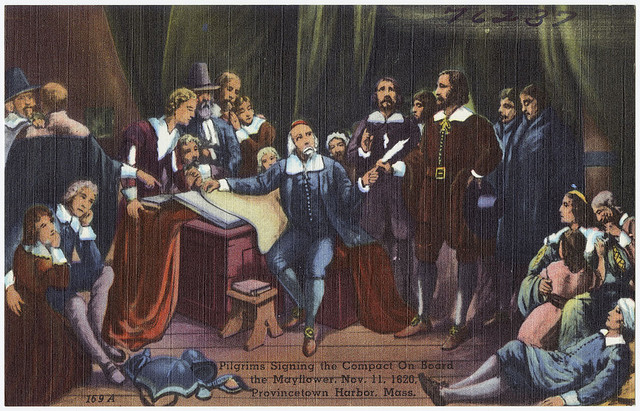Puritans vs Pilgrims
Many people today may not know the difference between puritans and pilgrims, often thinking of them as belonging to the same Catholic Church. Although there are similarities between the two groups, there are also differences that will be highlighted in this article. Both puritans and pilgrims branched out from the same Biblical Christianity, starting in the late 15th and early 16th centuries when dissatisfied individuals with the Church of England were referred to as puritans. Within this wide group of people, there were those with a very distinct set of beliefs. Most puritans remained within the church and decided to cleanse or purify it through second reformation, as they felt the church was coming under too much Catholic influence. However, some puritans defied the Church of England and dared to make their own churches, leading to persecution, harassment, and victimization from the church. Fearing for their lives, about a hundred men, women, and children set sail for Holland, where they felt dissatisfied with the corruption of their faith and identity. From there, they again moved to a new land on the Mayflower towards America, where they named the settlement as Plymouth, after the area of England they left behind.
Key Takeaways
- Pilgrims were the first people to set foot in the New World after declaring their dissatisfaction with the way the church worked, and they wanted to save their religious thoughts and freedom.
- Puritans were rigid followers of Protestantism who were dissatisfied with the Church of England and many of its practices, but some stayed back and decided to purge the system from within.
- Although both Puritans and Pilgrims followed the same religion, they had different views as to how to proceed with their faith.
Who are Pilgrims?
Pilgrims were the first people to set foot in the New World after declaring their dissatisfaction with the way the church worked. They were essentially separatists. These pilgrims, who came on the Mayflower, could not survive the harsh winters of the new area, and by the time spring arrived, nearly half of them perished. However, despite all hardships, the group survived and even prospered a little bit. The group was bolstered by more pilgrims coming and joining them. In a religious sense, pilgrims were different from puritans as they did not bow down to the supremacy of the Anglican Church and wanted to save their religious thoughts and freedom. Pilgrims were traders and rather poor. Pilgrims wanted to have more control over their religious lives as well as to save themselves from persecution in England.
Who are Puritans?
Puritans were rigid followers of Protestantism, who were dissatisfied with the Church of England and many of its practices. Some of these puritans stayed back and decided to purge the system from within, while some of them went to the New World, without severing ties with the Church of England, to spread their religion in the New World. Puritans, who came to the New World, belonged to the upper classes. Also, most of the Puritans who found their way to the New World were well-educated.
What is the difference between Puritans and Pilgrims?
- Definitions of Puritans and Pilgrims: Puritans are a group of extremists in Protestantism who, though dissatisfied with the Reforms of the Church, still did not leave the church and stayed with it, advising reforms. Pilgrims were a group of Separatists who left the Church of England as they did not accept the changes and did not agree with their ways. So, overall, Pilgrims were a group of Puritans.
- Number: Pilgrims were few in number (102 men and women), while Puritans came to America in thousands.
- Class: Most of the pilgrims were poor, while the puritans were from the upper middle class.
- Purpose: Some pilgrims came for religious purposes while some came looking for better economic conditions. Puritans mainly came for the purpose of spreading the religion in the New World.
As you can see, though both Puritans and Pilgrims followed the same religion, they had different views as to how to proceed with their faith.
